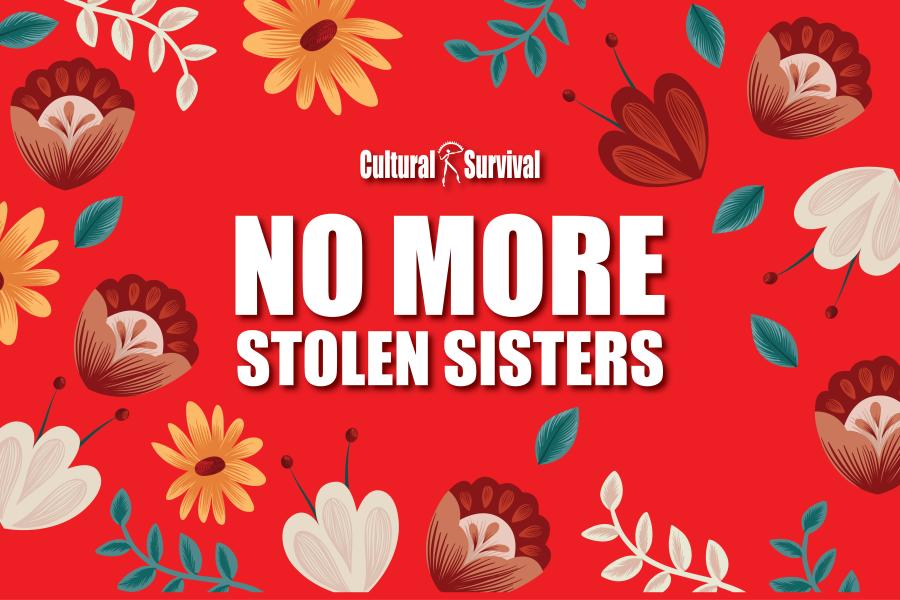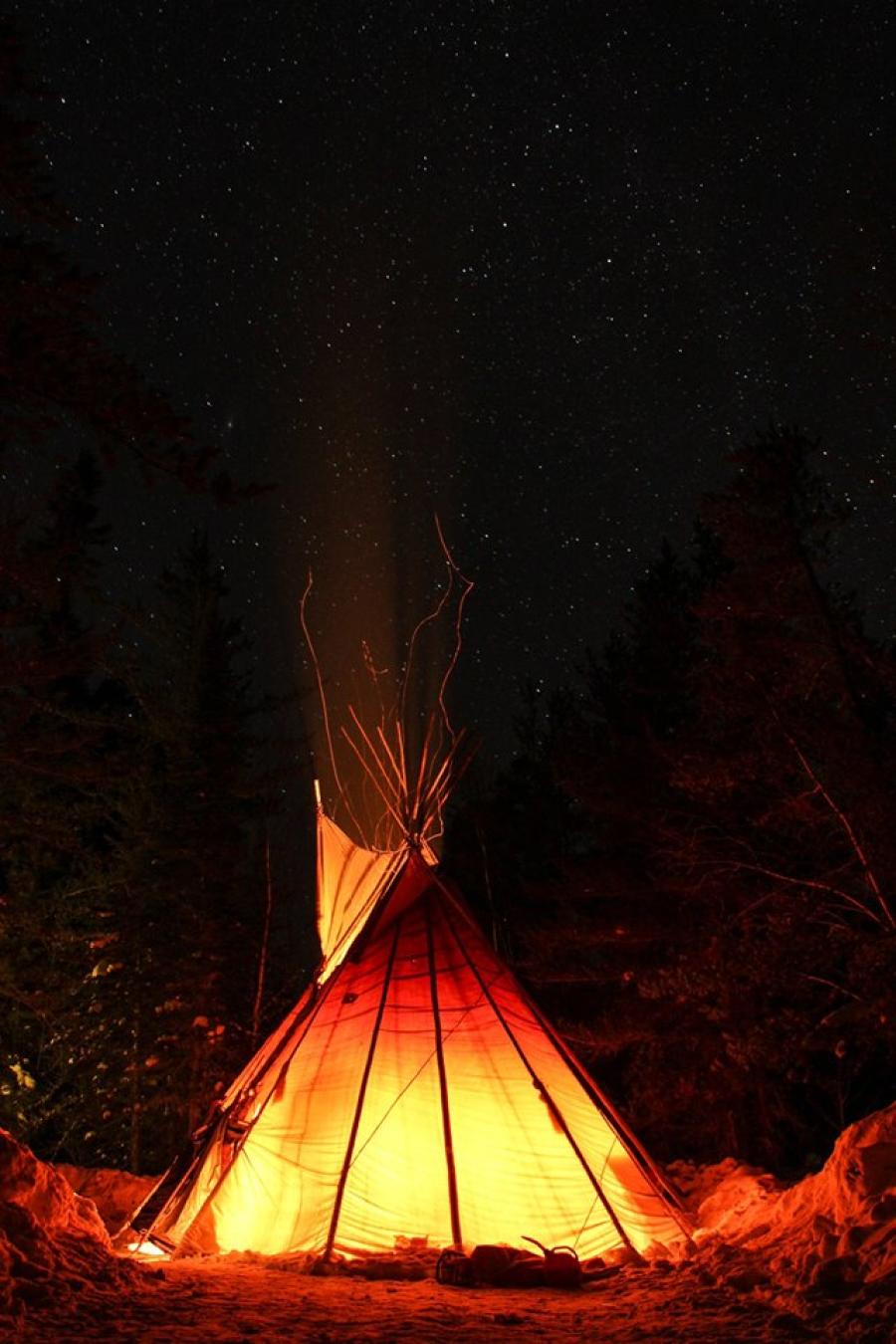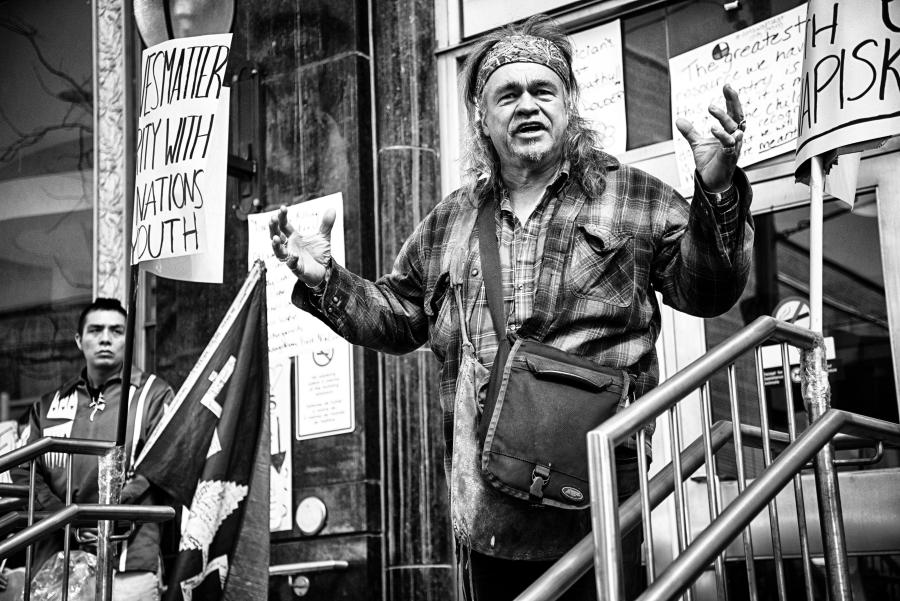Newspaper coverage of the social problems we have in Sheshatshiu -- the high suicide rate, the gas-sniffing children -- blame boredom and isolation. Media in the South suggest that the solution is moving us to bigger communities where there might be jobs. The facts as I see them through Innu eyes are more complex. I share my insights in the hope of a constructive dialogue that will lead you to support us in taking responsibility for our own lives. We Innu view your solution as another chapter in a book that could be titled "They Kill Us with Kindness."
We have lived in our homeland Nitassinan for at least 2,000 years (archaeological evidence confirms this). For 1,950 of those years, we and our children lived happy, productive, and self-sufficient lives. Then, about 50 years ago, your governments attempted to take control of our lives. Deciding that the Innu way of life was inferior to the Euro-Canadian one, you tried to force us from our land, put our children into your schools, and make us live according to your laws. This assault was partially motivated by your desire to steal our resource-rich land with its nickel and hydroelectric power potential.
Your governments felt it was permissible to take such things without a negotiated agreement with us, the legal owners. Our elders say that this is like a person in the city moving into his neighbor's house and forcing that family outside. Canada's frontal attack (assisted by European churches) on a way of life that has sustained our people for thousands of years threw us off balance and we began to lose our sense of who we are individually and collectively. Some of us lost pride and self-image; some tried to drown our sorrows in the bottle. And yes, some of us, because of our drinking, neglected our children so that they followed our example and engaged in self-abuse such as gas sniffing.
Our problems are so critical that we do not have the luxury of long debates about who is to blame. We are committed to finding solutions that address both the symptoms and the causes of the disintegration of Innu society. We know that the solutions must be our solutions. For too long, we have accepted that the solutions suggested to us or imposed upon us by various branches of the governments of Canada and Newfoundland would be good solutions. Often, however, these supposed solutions have created more problems for Innu society. This has been a painful lesson.
For us to assume responsibility for our children, we must have the decision-making power to make and enforce laws. For a long time, we have been trying to pass a law banning alcohol and abused substances from our communities of Davis Inlet and Sheshatshiu. Dating back to 1949, Canada refused to register the Innu under the Indian Act so we did not have the authority to pass by-laws. Because we could not pass by-laws as an Indian Act band, the RCMP refused to enforce any laws passed by the Chief and Council. Fortunately, Canada has now agreed to register the Innu under the Indian Act (though the implementation of this agreement is as yet unrealized).
While we are designing Innu-appropriate programs for the treatment of our young people, we also know that it is essential for them to have access not only to recreation in the community but also to life in the country that has been the mainstay of Innu wellbeing for thousands of years. We need money -- consider some of the money as royalties for what governments have taken from our land -- in order to put in place crisis intervention, rehabilitation, prevention, and cultural-pride programs. We will be accountable for this money, but it must be offered with no strings attached. It must not be tied to the adoption of programs developed by Indian Affairs, Health and Welfare Canada, or agencies of the Newfoundland government.
In a recent column, Margaret Wente said Innu children are suffering because governments "don't dare intervene in band affairs." We are stunned by this assessment. The truth is that government assimilation policies started a cycle of abuse. These policies include taking our children and putting them in your schools or adopting them without informed parental consent. Social services forced us to parent your way and removed our children if we didn't. The cycle of abuse continues. We appreciate the recent actions by Canada and Newfoundland and their promises to help us get started, but Canada and Newfoundland must not continue to impose their laws and solutions on us. Even as we face the current crisis in Sheshatshiu and Davis Inlet, we are addressing the fundamental issues.
For the Innu, our land, Nitassinan, which includes a good portion of Labrador and Québec, is the foundation of our society. From it spring our religion and our socio-economic and political systems. As our way of life evolves and as Canada grows, we are committed to entering as a self-determining people into a respectful relationship with our Canadian neighbors. This does not mean assimilation.
The Innu way of life today is about preserving choice. Some of our young people will live on the land and pursue a traditional life. Others will decide to become truck drivers or business people or doctors. As we reestablish our society and as our young people learn to take pride in being Innu, abuses will decline as they do in every other society.
One thing we need in order to ensure the future of a healthy, vibrant Innu society is a comprehensive land-claims agreement that recognizes (not extinguishes as is Canada's policy) Innu rights, including ownership of sufficient lands and resources so that we can build a self-sufficient economy. We do not oppose developing the resources on our lands. But the pace and scale of development must be compatible with our continued use of the land for traditional activities.
We are currently in claims negotiations and we remain hopeful that Canada and Newfoundland will change their positions on the amount of land and resources they want the Innu to give up. If Canada's and Newfoundland's proposals prevail, we won't have sufficient land and resource revenues to build a self-sufficient economy; we will remain welfare dependent. Is that what Canadians want?
Even as the Innu are negotiating claims with Canada and Newfoundland, the country and the province continue to give our land and resources to third parties to develop. The Upper Churchill hydro development, Voisey's Bay nickel mine, and the massive hydro development of the Lower Churchill River are but a few examples. The Innu have asked for a moratorium on these developments until our claims are settled. Canada and Newfoundland have refused.
In good faith, we have been negotiating with Voisey's Bay Nickel and Newfoundland and Labrador Hydro with respect to the current proposals for Lower Churchill and Voisey's Bay, but we take the position that these projects cannot go ahead without our consent. If these projects prove compatible with our way of life, and we can get the same rate of return that all Canadians would find fair, then perhaps the projects can proceed. But we refuse to give our land and resources away.
I invite you to come to Sheshatshiu and Davis Inlet to meet our people and see first-hand our commitment to taking responsibility for our lives.
Article copyright Cultural Survival, Inc.



